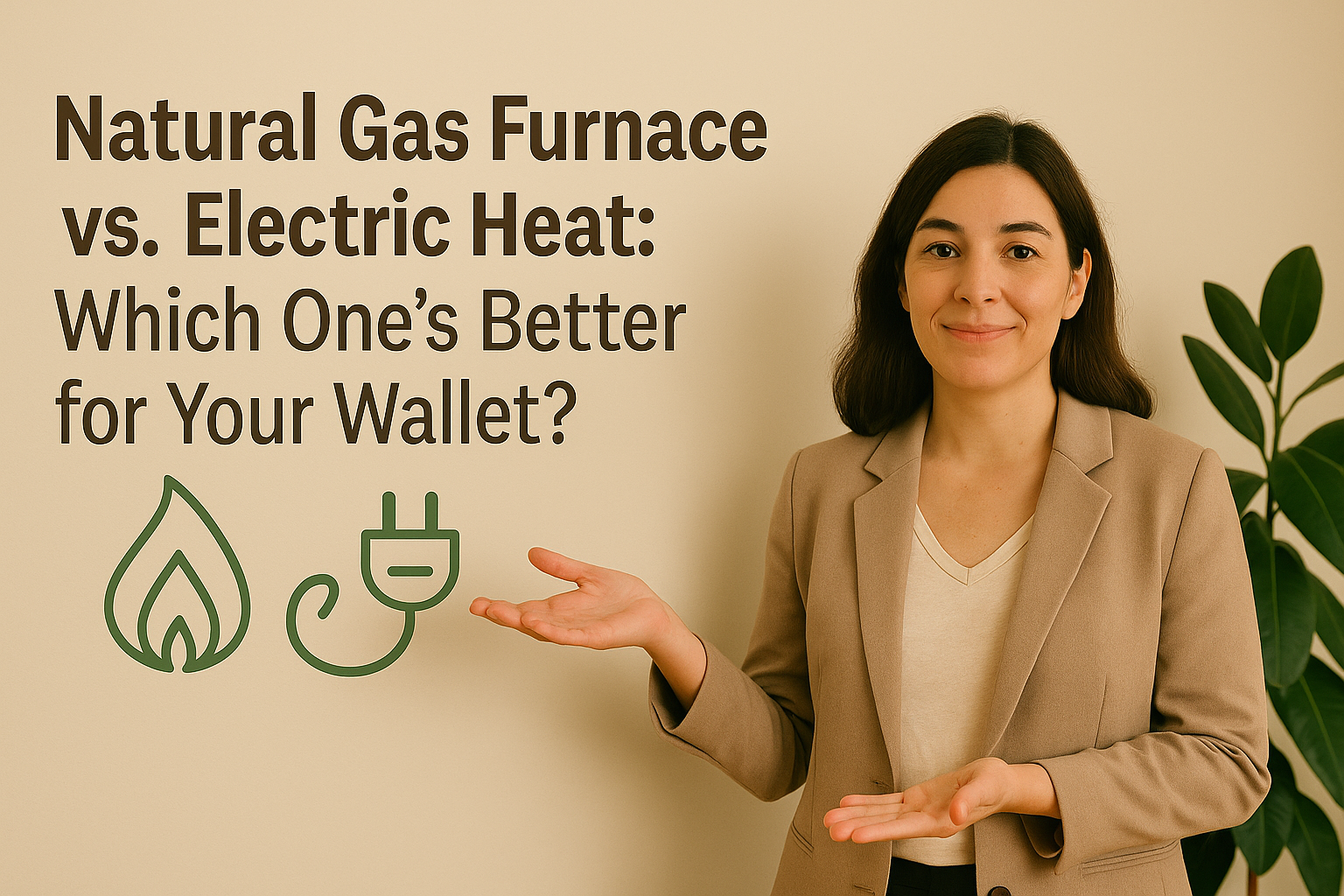👋 Hey Smart Shopper, Let’s Talk Heating Dollars
So you’re upgrading your home’s heating system — or maybe just weighing your options. Do you go natural gas or stick with electric heat?
This question comes up all the time, and there’s a lot of noise out there. Some folks say gas is outdated. Others swear by it for long-term savings. As your friendly neighborhood consumer advocate, I dug into the math, comfort, and climate impact — and here’s what you really need to know.
⚡️ Electric Heat: What’s the Deal?
Electric heat can mean a few different setups: baseboard heaters, electric furnaces, or heat pumps. For this comparison, let’s focus on electric furnaces, since they’re most like the gas furnace in question.
Pros of Electric Furnaces:
✅ Lower upfront cost
✅ No combustion = no carbon monoxide risk
✅ Smaller and simpler to install
✅ Quiet operation
Cons of Electric Furnaces:
❌ Way more expensive to run in most areas
❌ Slower to heat a home in cold temps
❌ May not qualify for the same rebates
❌ Shorter lifespan under heavy use
The big takeaway? Electric heat is better for mild climates or small spaces, but it can crush your energy bills if you're running it full time in a colder area.
🔥 Natural Gas Furnace: Why It’s Still the Smart Choice
Now let’s talk gas — and specifically, the Goodman 92% AFUE 60,000 BTU model.
This baby uses natural gas to generate heat — fast, reliable, and consistent. And thanks to its 92% efficiency, it’s also a lot less wasteful than the clunky gas models from 10 or 15 years ago.
Pros of Natural Gas Furnaces:
✅ Lower monthly heating bills (in most U.S. regions)
✅ Strong, steady heat output — great for cold winters
✅ Long lifespan (15–20 years with maintenance)
✅ Compatible with smart thermostats and zone systems
✅ More likely to qualify for rebates and efficiency programs
Cons of Natural Gas Furnaces:
❌ Higher initial install cost (especially if you don’t already have gas lines)
❌ Needs professional venting + gas hookup
❌ Not ideal if you live off-grid or in an all-electric community
💸 Let’s Compare Monthly Bills
Numbers don’t lie. Here’s a typical cost comparison for 1,500 sq. ft. home in a cold climate over a full winter season:
| Heating System | Energy Source | Estimated Monthly Cost | Total for Winter |
|---|---|---|---|
| Electric Furnace | Electricity | $250–$350 | $1,250–$1,750 |
| Natural Gas Furnace | Natural Gas | $100–$150 | $500–$750 |
That’s up to $1,000 saved per winter — and that’s using national average rates from the U.S. Energy Information Administration.
🌎 Bonus Round: What About the Environment?
Good question! Many shoppers these days (myself included 🙋♀️) care about climate impact.
-
Electric heat can be cleaner if your electricity comes from renewables (like wind or solar).
-
Natural gas burns cleaner than oil, but it’s still a fossil fuel.
That said, the efficiency of gas furnaces like the 92% AFUE Goodman means they’re far better than older models, and many cities offer rebates for upgrading to one of these.
For a truly green choice, pair a high-efficiency gas furnace with a programmable thermostat and solid insulation. You'll reduce both your carbon footprint and your bills.
🧾 Savvy’s Bottom Line: Pick What Fits Your Life
There’s no one-size-fits-all answer — but here’s my cheat sheet:
👉 Choose Gas if you:
-
Live in a cold climate
-
Already have gas lines in place
-
Want lower monthly bills and faster heat
-
Plan to stay in your home for 10+ years
👉 Choose Electric if you:
-
Live in a warmer region (think Florida, Southern Cali, etc.)
-
Don’t have access to natural gas
-
Want a lower upfront investment
-
Use heat only occasionally
And if you’re leaning toward gas, the Goodman GR9S920603BN is one of the most balanced, budget-wise models out there: high efficiency, flexible install, and a warranty that actually means something.
🙋♀️ Stay Savvy with Every Choice
Whether you go gas, electric, or hybrid, the key is staying informed. You deserve clarity, not confusion — and definitely not high bills you didn’t see coming.
Still not sure? Drop your questions in the comments or send me a message — I’m always here to help decode HVAC choices and help you stay warm, smart, and yes — Savvy. 💙
In the next topic we will read about: Furnace Installation Costs: What’s Worth Paying For (And What’s Not)?







